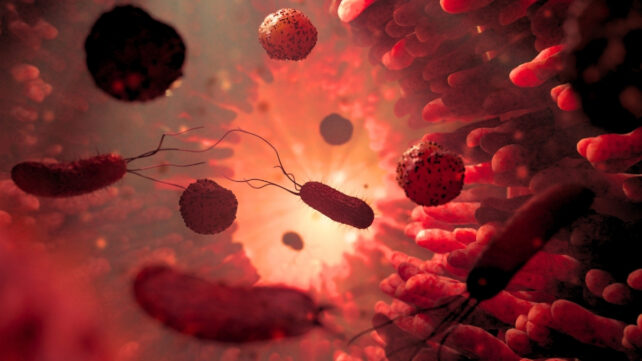A review of studies on fecal transplants alleviating symptoms of depression has found the treatment works best when the packages of helpful microbes are delivered straight to our gut through our butts, as opposed to an oral route.
This was particularly the case for people who also have irritable bowel syndrome, the meta-analysis determined. However, they also found that the effects diminished by 6 months.
"Fecal microbiota transplantation exerts a sustained and progressively enhanced antidepressant effect," the researchers found, upon reviewing 12 randomized trials, collectively involving 681 people. The studies, published between 2019 and 2024, were conducted primarily in China, with a few studies also taking place in the US, Australia, Canada, and Finland.
Related: Scientists May Have Finally Found a Key Mechanism Behind Irritable Bowel Syndrome
Fecal transplants are intended to restore our digestive tract with a healthy ecosystem of microbes, which can become degraded or unbalanced with illness or the use of medications like antibiotics. This ecosystem, called our gut microbiome, includes bacteria, fungi, protists, and even viruses.
Nanjing University epidemiologist Xiaotao Zhang and colleagues caution that the studies included in their analysis followed patients for between two weeks to 12 months after their treatment, which in some trials was only a single dose. So long-term efficacy of this procedure is still unclear, and highlights the need for long-term, randomized controlled trials with consistent depression measures.
As well as treatment for depression and IBS, fecal transplants have shown promise for a range of conditions, including obesity and type 2 diabetes. They can also help treat some life-threatening infections with greater success than antibiotics.

But, as with most medical procedures, fecal transplants carry concerning risks, especially if not performed with medical precision. For example, microbes intended for one location, such as the large intestine, can cause disruptions in other areas of the gut, like the small intestine.
Introducing incompatible or even dangerous microbes can also cause serious health issues. This is absolutely not a procedure you want to try at home.
But the impact of a healthy gut microbiome is so promising that some researchers have suggested health professionals should store a stool sample from us when we're young and healthy for use when trouble arises.
An estimated 330 million people around the world are thought to live with depression. Many do not find relief with current treatments, so other options are sorely needed. Recent research has established a clear link between gut problems and major depressive disorder, suggesting tackling one condition could also help the other.
Zhang and team's review finds this does indeed seem to be the case for at least some people who respond well to a restoration of healthy microbial communities in their digestive system.
It seems we do need to keep our microscopic symbionts happy to stay healthy. And we owe them at least that much, given they likely helped us grow big brains.
This research was published in Frontiers in Psychiatry.

